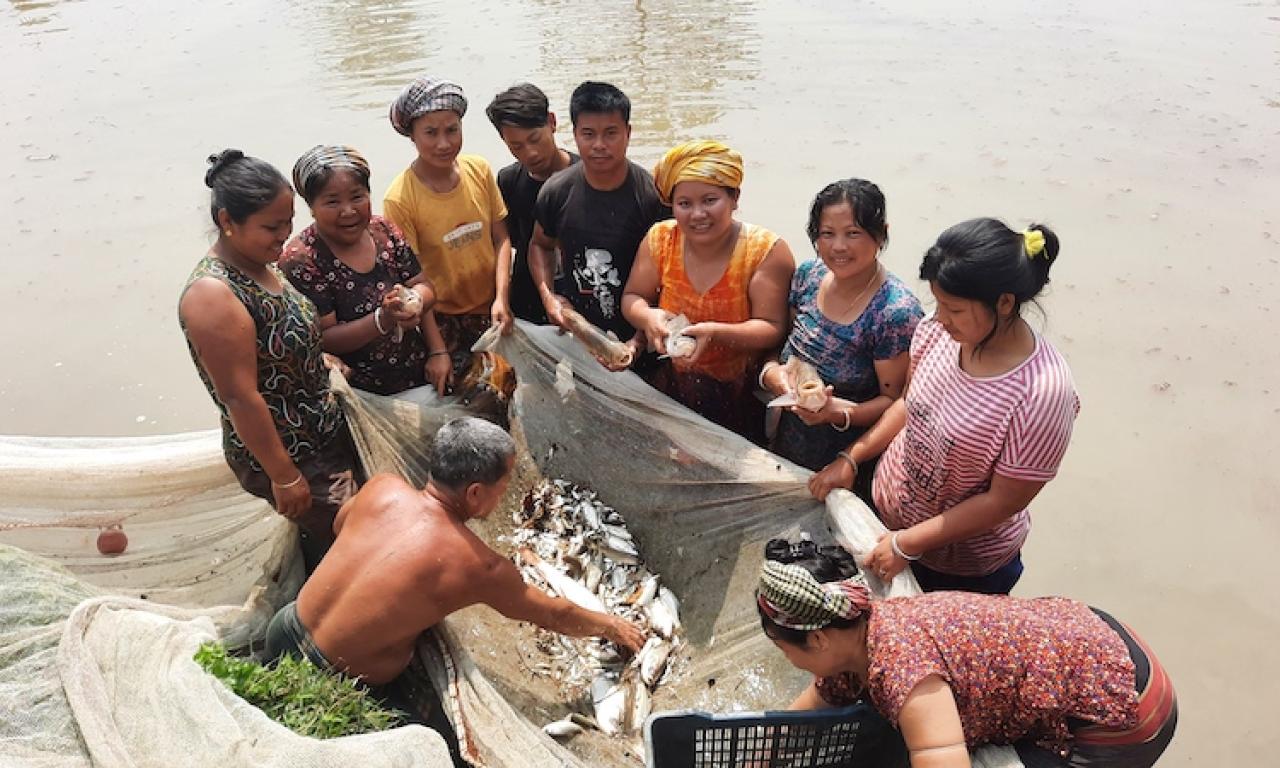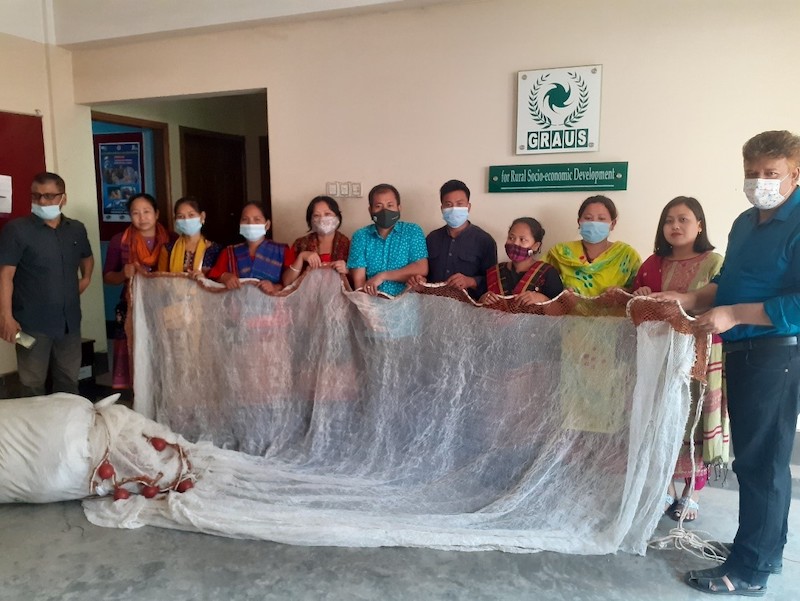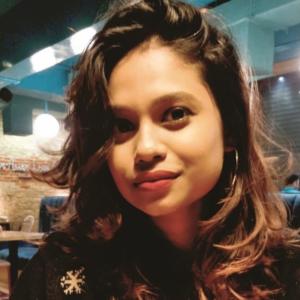
- The establishment of women-led fish harvesting groups in Bandarban, through the Feed the Future Bangladesh Aquaculture and Nutrition Activity, has provided affordable fish harvesting services to local fish farmers.
- This has resulted in a consistent supply of fish to the local market and an alternative livelihood option for local women.
- Supporting fish harvesting groups not only increases fish farmers’ income and livelihoods but also promotes the consumption of nutrient-rich fish, which is essential for improving family nutrition.
Aquaculture has expanded significantly as an industry in Bangladesh over the last 20 years. It has the potential to greatly improve food and nutrition security while also creating sustainable livelihoods for millions of people.
Women are critical components of the aquaculture value chain, from production to processing and marketing. According to World Bank estimates, women perform around 1.4 million of the total 17.8 million jobs in the industry. Despite being present at nearly every stage of aquaculture, women are significantly underrepresented in fish harvesting.
Establishing women-led fish harvesting groups in Bandarban
Bandarban is a district in Bangladesh’s southeastern region recognized for its hilly terrain and diverse ethnic communities. As aquaculture is not a primary source of income in the area, there are just a few fish harvesting groups in operation. Small-scale fish farmers are unable to maximize their production and profitability due to the lack of access to fish harvesting facilities and expensive fishing net rental expenses.
WorldFish, through the Feed the Future Bangladesh Aquaculture and Nutrition Activity, partnered with two national NGOs to establish three women-led fish harvesting groups in Bandarban. The United States Agency for International Development (USAID) is funding this initiative, which seeks to boost local fish farming and empower women in the community.
In March 2022, the first group was formed in Rowangchhari, Bandarban, in collaboration with the national NGO, Gram Unnayon Sangathon (GRAUS). The group is made up of five women and one man who were given training in fish harvesting and post-harvest technologies as well as a fishing net on a cost-share basis. Tahzingdong, another national NGO, founded the other two harvesting groups.
Extending fish harvesting support to other fish farmers

The women-led fish-harvesting groups have been providing other fish farmers reasonably priced fish harvesting services since getting the fishing net. As a result, the farmers have been able to sell their fish several times at a profit.
This has resulted in a steady supply of affordable fish to the market, meeting local demand. The group has already harvested fish from 24 ponds and creeks, earning approximately 35,000 Taka ($333). They receive six harvesting assignments every month on average and have even begun renting out their fishing net to other harvesting groups.
“We are thrilled to have our own fishing net to assist fish farmers. We are earning a solid living from our new profession and have evolved to become aquaculture service providers from just general laborers,” said Anjana Tanchangya, one of the harvesting group members.
Farmers occasionally request that they sell the harvested fish in the market in order to earn a reasonable price. In order to promote and facilitate the expansion of their fish harvesting group, GRAUS has equipped them with fish-weighing equipment, barrels for preserving fish and crates for carrying or transporting fish. Their goal now is to purchase a van, which will allow them to transport the harvested fish to the market more easily.
Generating multiple benefits to communities
The aquaculture value chain is seen as a male-dominated industry in Bangladesh, exacerbated by the lack of access to resources and training for women. Women often lack access to credit and finance, making it difficult for women to start their own aquaculture businesses.
After receiving training from the Feed the Future Bangladesh Aquaculture and Nutrition Activity, members of the women-led fish-harvesting group in Wagyoipara opened a bank account to save money for the purchase and future maintenance of fishing nets.
Supporting fish harvesting groups not only increases fish farmers’ income and livelihoods but also promotes the consumption of nutrient-rich fish, which is essential for improving family nutrition. As a result, it is critical to recognize the valuable contributions of women in the aquaculture sector and facilitate their efforts to establish a more equitable and inclusive society.
